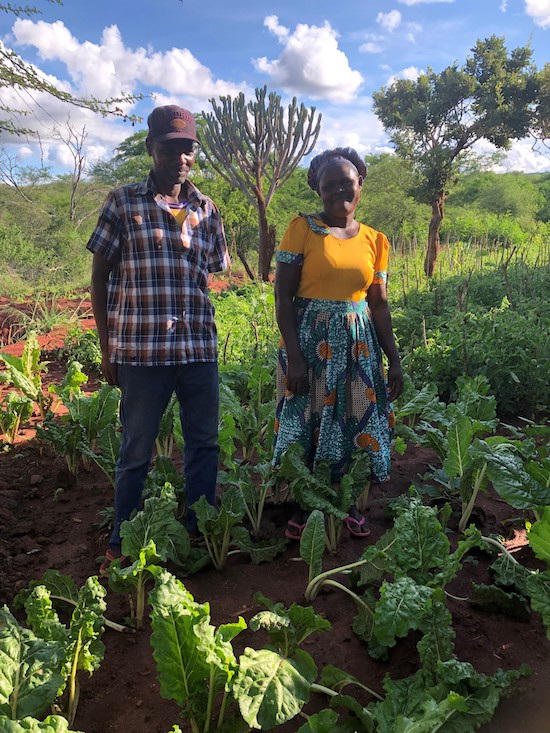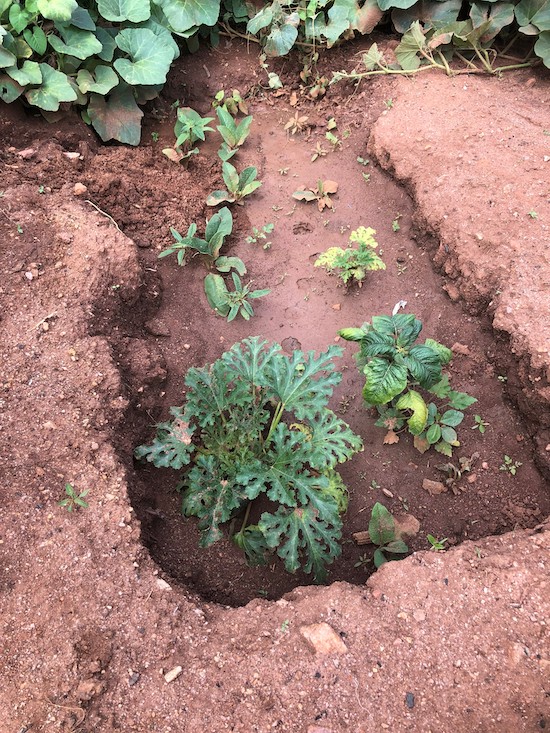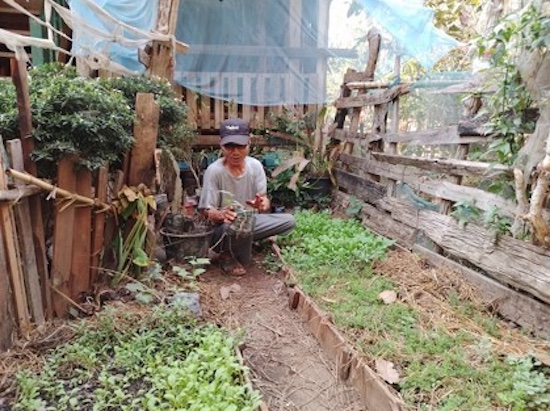AID’s partners boost environmental awareness and disaster resilience in the Asia-Pacific and Africa
After cyclones, the price of stockfeed in stores often rises temporarily as farmers seek to replace their own damaged supplies. But for members of Bulongan Livelihood Organization (BULO) in the Philippines, there is no longer a need to buy stockfeed at any time. They have switched to locally grown, purely organic food for their pigs.
Through a project run by AID’s partner IFI-VIMROD, BULO members saw that organic stockfeed had many advantages. Farm input costs were negligible because the organic stockfeed could be sourced for free, using homegrown vegetables and discarded scraps such as taro leaves and banana peels. Even after cyclones, such food was still readily available. The pigs seemed more resilient to diseases, especially when their diet included immunity-boosting vegetables like horseradish.
Many other AID partners also integrate environmental sustainability and disaster resilience (including climate resilience) into their programs.
E-CARE in the Philippines and ADSE in Kenya promoted alternative energy sources, reaching 2,907 people in 2023. The 10 solar lighting systems installed by ECARE were funded by communities taking out loans, and E-CARE reported that the success of these first solar projects had inspired other communities to request loans. ADSE trained local champions to make fuel-efficient stoves, meaning fewer trees felled for fuel.
E-CARE, IFI-VIMROD and ADSE also mobilised hundreds of people to conduct tree-planting. In the Philippines, this included planting bamboo to conserve water and mangroves to mitigate coastal erosion. Mangroves can also serve as a buffer against tsunamis. ADSE established two community-based plant nurseries and trained 68 community environmental champions, who led the planting of 5,680 trees across two Kenyan sub-districts.
ADSE and IFI-VIMROD helped communities boost their resilience to droughts and floods. ADSE promoted drought-resilient crops such as amaranth, sunflower, and sorghum. Additionally, ADSE helped communities to install water supply facilities such as sand dams (thick layers of sand reduce water evaporation), zai pits (filled with mulch to retain moisture and improve soil fertility), boreholes and farm ponds. Similarly, IFI-VIMROD promoted traditional varieties of rice and corn, which are known for their resilience to droughts and floods.
CPM in Myanmar ran awareness-raising sessions on environmental conservation and climate change in three villages, including explaining the negative effects of “slash and burn” agriculture. An evaluation in 2023 noted that the villages preserved the natural forest and streams around their village area, and established community collective farms that modelled the use of natural (non-chemical) fertilizer and insecticide.
ACOM in the Solomon Islands and Vanuatu similarly ran awareness-raising sessions on disaster preparedness and climate change, including identifying the main disaster threats and which community members might be most vulnerable. On Savo Island off the coast of Honiara, the sessions incorporated initial consultations to establish an “Environment Observatory”, which will record climate change data including rainfall and sea levels.
In addition, ACOM in the Solomon Islands established an organic farming demonstration plot in East Honiara and plans to strengthen a sea wall in West Honiara, to prevent coastal erosion.
During 2023, AID’s partners conducted environmental and disaster resilience awareness sessions with more than 9,000 people across five countries (Philippines, Kenya, Myanmar, the Solomon Islands, and Vanuatu). That was more people reached than in any of the previous eight years that AID has been compiling this data.
Finally, AID funded the translation of an Anglican disaster preparedness toolkit (called Pastors and Disasters) into four Pacific languages: Tongan, Fijian, Bislama (Vanuatu), and Pijin (Solomon Islands). The toolkit will be a key resource for an online Pacific disaster preparedness course that will be run later this year.
As the world’s environmental and disaster risk challenges rise, AID’s partners are rising to the challenge.
AID appreciates the work of our partners and the work of local communities in Kenya and the Asia-Pacific.
AID would like to thank the Australian Government through the ANCP program, as well as our many supporters, for providing the funding for this vital work.
We have committed to contribute $1 for every $5 we receive from the Australian Government. This means that every donation you make to this project will be combined with funding from the Australian Government to reach more people. Your donation will allow us to extend this program.
–
AID wishes to thank all who support this project through prayer and/or donations.

Stephen and Sabina in their vegetable garden watered via a pipe from Kisesini Borehole, Machakos County, Kenya. © Julianne Stewart, AID.

These vegetables have been planted in a zai pit to enhance water conservation, Makueni County, Kenya. © Julianne Stewart, AID.

Saw Winbird’s plant nursery in Htee Haw Village, Myanmar. © CPM. Used with permission.
